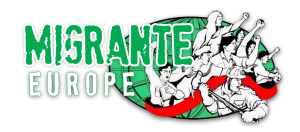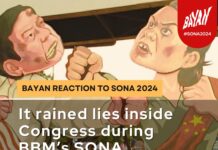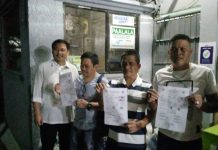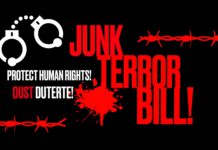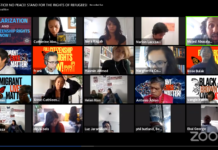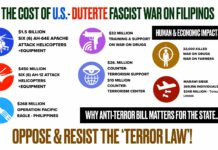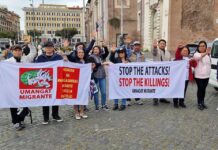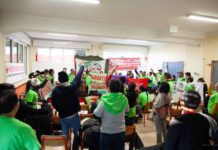In 2021, I was one of two journalists awarded the Nobel Peace Prize. The last time a journalist received this award was in 1935. The winner, a German reporter named Carl von Ossietzky, couldn’t accept because he was languishing in a Nazi concentration camp. By giving the honor to me and Dmitry Muratov of Russia, the Norwegian Nobel Committee signaled that the world was at a similar historical moment, another existential point for democracy. In my Nobel lecture, I said that an invisible atom bomb exploded in our information ecosystem, that technology platforms have given geopolitical powers a way to manipulate each of us individually.
Just four months after the Nobel ceremony, Russia invaded Ukraine, using metanarratives it had seeded online since 2014, when it invaded Crimea, annexed it from Ukraine, and installed a puppet state. The tactic? Suppress information, then replace it with lies. By viciously attacking facts with its cheap digital army, the Russians obliterated the truth and replaced the silenced narrative with its own—in effect, that Crimea had willfully acceded to Russian control. The Russians created fake online accounts, deployed bot armies, and exploited the vulnerabilities of the social media platforms to deceive real people. For the American-owned platforms, the world’s new information gatekeepers, those activities created more engagement and brought in more money. The goals of the gatekeepers and the disinformation operatives aligned.
That was the first time we became aware of information warfare tactics that would soon be deployed around the world, from Duterte to Brexit to Catalonia to Stop the Steal. Eight years later, on February 24, 2022, using the same techniques and the same metanarratives he had seeded to annex Crimea, Vladimir Putin invaded Ukraine itself. This is how disinformation, bottom up and top down, can manufacture a whole new reality.
Less than three months later, the Philippines fell into the abyss. May 9, 2022, was election day, when my country voted for a successor to Duterte. Although there were ten candidates for president, it came down to two: opposition leader and vice president Leni Robredo and Ferdinand Marcos, Jr., the only son and namesake of the dictator Ferdinand Marcos, who declared martial law in 1972 and stayed in power for nearly twenty-one years. The first of the kleptocrats, Marcos was accused of stealing $10 billion from his people before finally being ousted in a People Power revolt in 1986.
The evening of the election, Marcos Jr. took an early, commanding lead and never dropped it. At 8:37 p.m., with 46.93 percent of precincts transmitting, Marcos had 15.3 million votes compared to Robredo’s 7.3 million. At 8:53 p.m., with 53.5 percent transmission, Marcos was at 17.5 million, Robredo at 8.3 million; by 9:00 p.m., with 57.76 percent, Marcos was at 18.98 million, Robredo at 8.98 million.
This is how it ends, I said to myself that evening. The election was proving a showcase for the impact of disinformation and relentless information operations on social media that from 2014 to 2022 transformed Marcos from a pariah into a hero. The disinformation networks didn’t just come from the Philippines but included global networks, like one from China taken down by Facebook in 2020. They helped change history in front of our eyes.
Starting with my Nobel Peace Prize lecture at the end of 2021, I had repeatedly stated that whoever won the election would determine not just our future but also our past. You can’t have integrity of elections if you don’t have integrity of facts.
Facts lost. History lost. Marcos won.
***
Compared to others in hiding, in exile, or in jail, I am lucky. The only defense a journalist has is to shine the light on the truth, to expose the lie—and I can still do that. There are so many others persecuted in the shadows who have neither exposure nor support, under governments that are doubling down with impunity. Their accomplice is technology, the silent nuclear holocaust in our information ecosystem. We must treat its aftermath the way the world did after the devastation of World War II: creating institutions and agreements like NATO, United Nations, and the Universal Declaration of Human Rights. Today, we need new global institutions and a reiteration of the values we hold dear.
We are standing on the rubble of the world that was, and we must have the foresight and courage to imagine, and create, the world as it should be: more compassionate, more equal, more sustainable. A world that is safe from fascists and tyrants.
This is my journey to doing that, but it is also about you, dear reader.
Democracy is fragile. You have to fight for every bit, every law, every safeguard, every institution, every story. You must know how dangerous it is to suffer even the tiniest cut. This is why I say to us all: we must hold the line.
This is what many Westerners, for whom democracy seems a given, need to learn from us. This book is for anyone who might take democracy for granted, written by someone who never would.
What you do matters in this present moment of the past, when memory can be so easily altered. Please ask yourself the same question my team and I ask every day:
What are you willing to sacrifice for the truth?
